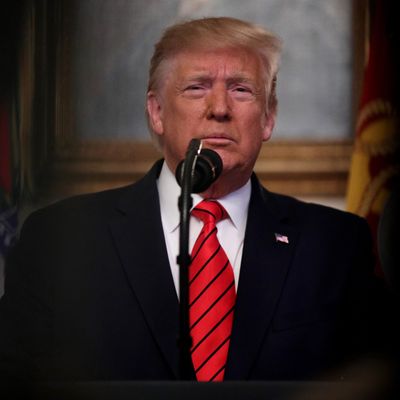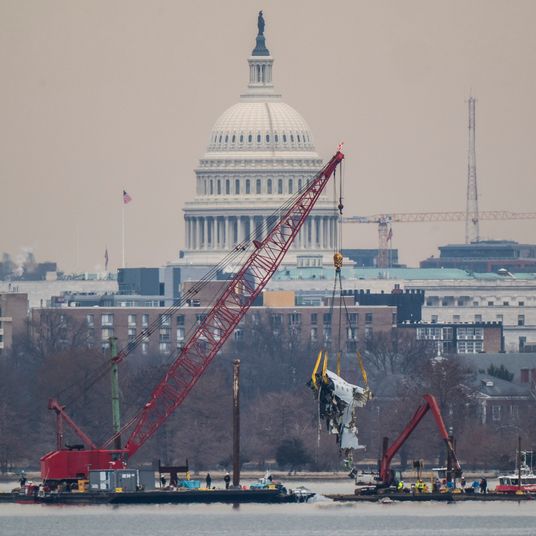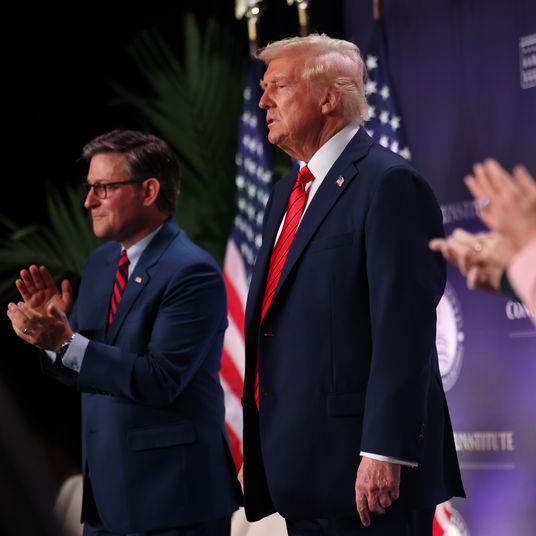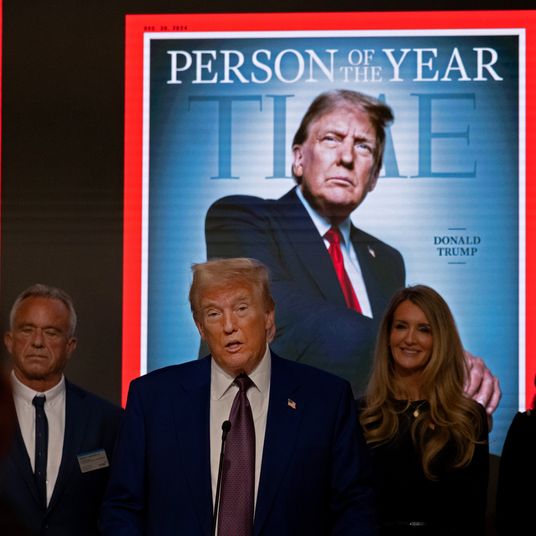
It’s hard to know how to respond to the killing of ISIS leader Abu Bakr al-Baghdadi. A brutal killer who transformed the group into a global terrorist network is dead. U.S. intelligence and Special Forces, aided by Iraqi and Kurdish intelligence officials, successfully carried out a tremendously dangerous mission with only slight injuries to two American service members. We badly need our security forces to remain professional and nonpartisan and able to count on the united support of the country. This was reflected in messages from leading Democratic presidential candidates, and progressive critics of President Trump’s foreign policy, praising those involved in Saturday night’s raid.
And yet the news is full of stories suggesting that President Trump’s still-unexplained reversal of U.S. support for the Kurds in Syria almost cratered the operation while it was under way. No one inside or outside the administration can explain the long-term strategy for preventing ISIS from strengthening itself and again threatening U.S. troops in the region or increasing its ability to inspire attacks around the world. And while it appears that the raid itself was as professional as every other
Special Forces operation under presidents of both parties, Trump quickly set about politicizing and exaggerating a legitimate national-security accomplishment.
Americans need to understand that while taking out the world’s most wanted terrorist is clearly a victory for the U.S., it likely did little to solve the broader underlying issues. Here’s why you should be skeptical of Trump and his supporters’ claims to the contrary.
Al-Baghdadi’s death won’t do much to reduce the threat posed by ISIS
The security Establishment has been invested for more than a decade now in the idea that killing leaders of terrorist groups — whether through drone strikes, missile attacks, or raids like the one that killed al-Baghdadi — is an effective way to keep groups from being able to threaten American citizens or the U.S. mainland. There is even a cynical name for it: “mowing the grass.” But as Spencer Ackerman notes, Trump is third president in a row to announce that U.S. forces have taken out the leader of a top jihadist group. The killings of Abu Musab al-Zarqawi, under George W. Bush, and Osama bin Laden, under Barack Obama, did not put an end to the terrorist groups they led or stop the lone wolves who commit atrocities in their names. Similarly, few security professionals think al-Baghdadi’s death will make a major difference in the fight against ISIS. Some analysts have argued that killing senior leaders can actually be counterproductive, as they’re often replaced with more violent, younger actors who have only known war.
Many already feared that Trump’s hasty decision last month to pull U.S. soldiers out of northern Syria would just clear the way for an ISIS resurgence. The group’s next leader could raise the level of violence in the Middle East — including against the U.S. troops who remain in the region.
We need a better system for holding ISIS figures accountable
There is no question that al-Baghdadi was one of the most repellent terrorist leaders to emerge in recent decades. In addition to overseeing the rise of a terror group that killed and brutalized thousands of people, he is accused of having personally participated in the murder, torture, and rape of Yazidi women — and possibly an American aid worker. But even as they welcomed news of al-Baghdadi’s death, some victims of ISIS lamented that there are not better avenues for bringing the group’s members to justice.
On Sunday, Nobel Peace Prize winner Nadia Murad, a Yazidi survivor of genocide and human trafficking at the hands of ISIS, said any members of the group captured alive “need to be brought to justice in an open court for the world to see,” calling for public trials like those held for Nazis at Nuremberg after World War II. But the United States — deliberately — has no option for dealing with terrorists that comports with U.S. criminal law. After the Obama administration, fearing political blowback, abandoned its efforts to try foreign terror suspects in domestic courts, opting instead to leave them at Guantánamo Bay, the military had no option other than to hand anyone it captured alive over to partner governments or imprison them on the battlefield. (This is how it came to be the case that the Kurds were holding high-value ISIS prisoners. Trump’s complaints that Europe wouldn’t take them rang hollow.)
Syrian human-rights activists have worked since the beginning of the conflict to document atrocities and pressure the United Nations to provide some measure of accountability for perpetrators. But Russia has stepped up to protect its Syrian clients and block the work U.N. investigators had been doing. That means no one in the region, or the wider Muslim world, will get a definitive account of their crimes. Instead, they heard a discredited American president use triumphalist and degrading rhetoric (“He died like a dog”) to describe al-Baghdadi’s final moments — and other top U.S. officials won’t even confirm that Trump’s account is accurate.
Trump is undermining the nonpartisan foundations of our national-security policy
On Sunday, President Trump seemed to brag that he had talked to only two Senate Republicans, Intelligence Committee chairman Richard Burr and Judiciary chairman Lindsey Graham, before announcing al-Baghdadi’s killing. He told reporters that he did not inform House Speaker Nancy Pelosi of the raid ahead of time because he “wanted to make sure this [was] kept secret.” (Pelosi has been receiving intelligence briefings since 1988 and has never been accused of leaking.)
Even when presidents want to limit knowledge of a covert operation, the law specifies that they must notify the Gang of Eight — the majority and minority leaders from both chambers of Congress, plus the top Democrats and Republicans on the Intelligence committees. “The House must be briefed on this raid, which the Russians but not top congressional leadership were notified of in advance,” Pelosi said in a statement. On ABC’s This Week, House Intelligence Committee chairman Adam Schiff argued that the administration had made a mistake by failing to notify Congress. “If something had gone wrong, had we gotten into a firefight with the Russians, it’s to the administration’s advantage to say, ‘We informed Congress we were going in, we gave them the chance to give feedback,’” he explained.
The Trump administration declining to notify Congress, and suffering no consequences for this, is another step toward eliminating the checks and balances of divided government. In recent decades, Congress has largely chosen to cede its role in deciding when to use lethal force to presidents in both parties; even if the trend isn’t new, this latest incident is another disturbing sign that Congress is failing to fulfill its role as laid out in the Constitution. If it’s acceptable to keep Congress in the dark about a raid against ISIS, one of our major foes, would the same go for a strike against Iran? Where do we draw the line? As the U.S. is lauded for taking out a terrorist who caused tremendous suffering in the world, we should not lose sight of another global threat: the unraveling of democratic accountability for the use of military force.





























